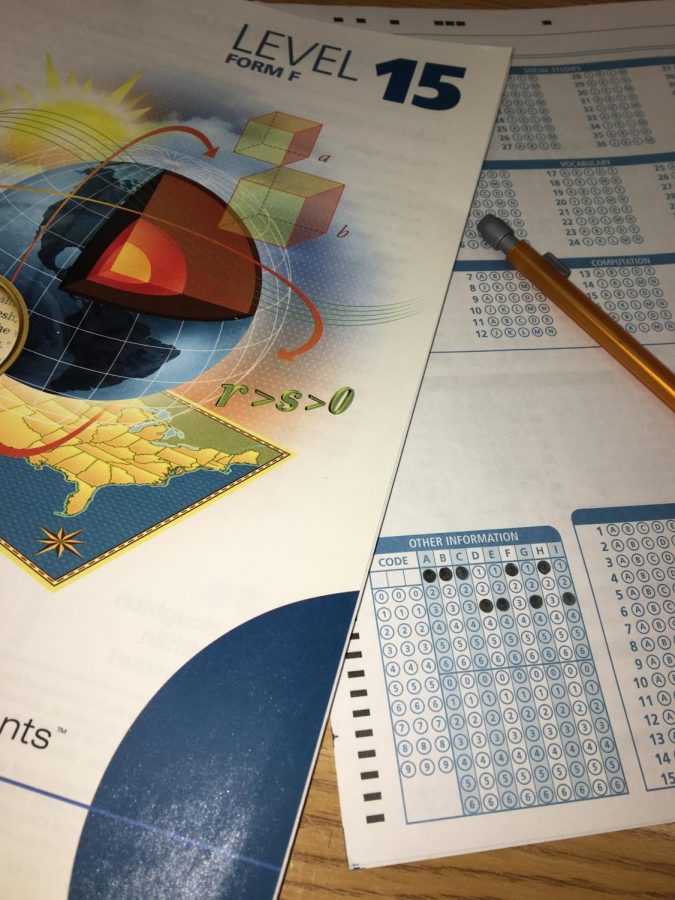Is the Test Worth the Stress?
Do Iowa Assessments really benefit students?
April 5, 2018
Every year when the snow melts into spring, it brings flowers, rain, and the annual Iowa Assessments. We sit in our class rooms for hours in the morning, filling bubble after bubble to mark our answers the sheet. Some students like the test and some students hate it, but we all have to end up taking it.
Many students have issues with the test because many topics have not covered in class, or have barley been touched on, and they’re left with no other option but guessing.
“There’s a ton of questions, especially in the science portion of the test, that we had never gone over in class. There was once a question about breeds of aquatic animals, and I didn’t have a clue on what to put,” Gaby DuPont, fr., said.
Students are spending hours of class time on the test, but many of them don’t even know what purpose the test serves for the state.
“We’re told every year to do our best on the test, but no one tells us why we’re taking it, or what the data is used for,” DuPont said. “I didn’t learn this until way later, but EO classes are based on Iowa Assessment scores, and if you have one bad test, that can cause you to miss out on so many opportunities.”
Iowa Assessments are considered standardized tests, which have been implemented in school systems for years. Many believe that there are far better ways to determine a student’s knowledge.
“We sit down for hours every day taking these assessments, and it’s draining,” John Fan, fr., said. “You can’t decide how smart someone is by their ability to fill in bubbles, and I think that if there were more hands on testing opportunities, we could more accurately show what we know.”
Teachers also see the flaws in Iowa Assessments, because their students learn in different ways, and therefore should be tested in different ways.
“Some people just aren’t good takers, and the tests don’t make accommodations for learning or language barriers either,” Carrie Stastny, special education assistant, said.




























